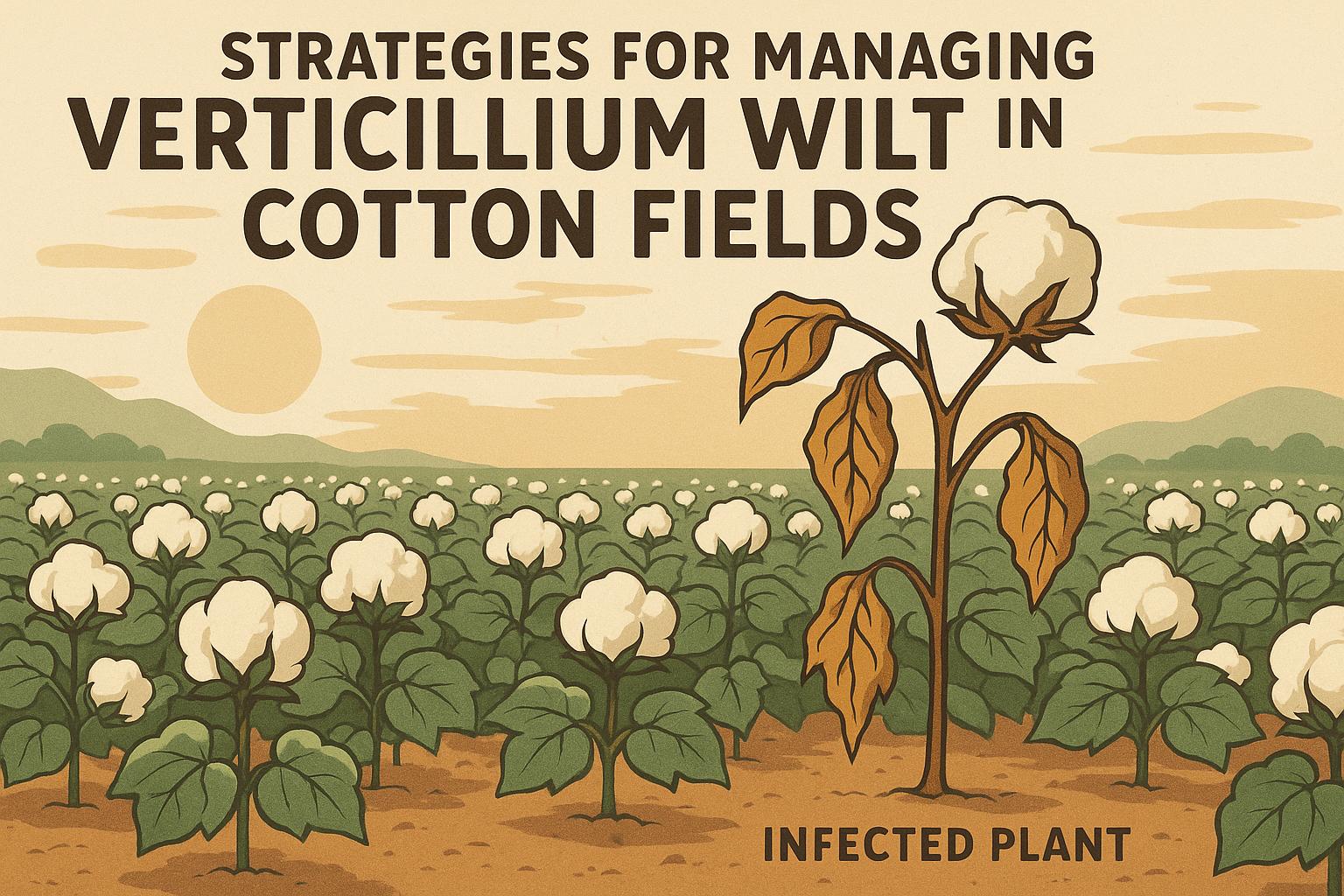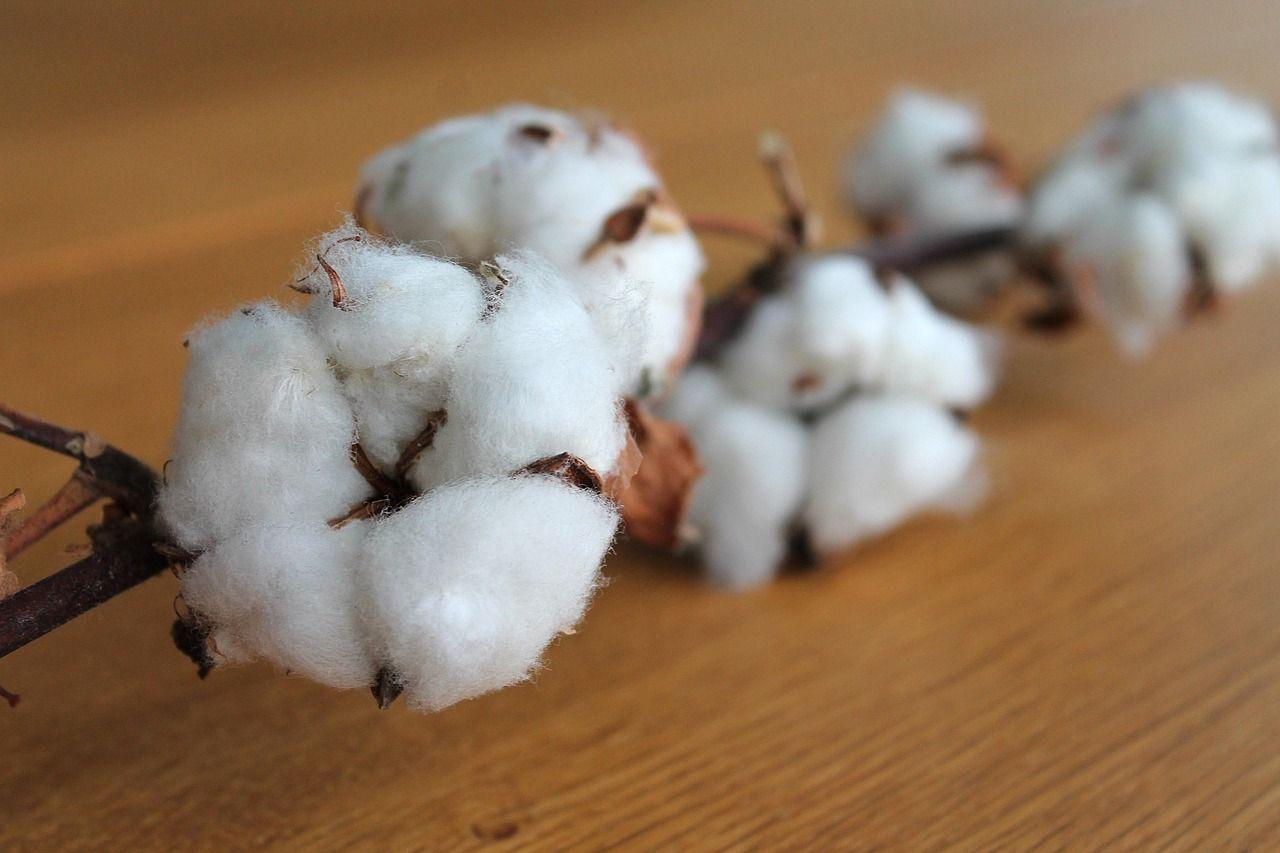Organic cotton is a safer, healthier, and eco-friendly alternative to conventional cotton. It uses less water, emits fewer carbon emissions, and avoids harmful chemicals. This benefits farmers, consumers, and the environment. Here’s a quick summary of why organic cotton matters:
- 91% Less Water Usage: Relies on rain-fed farming and better soil health.
- 46% Lower Carbon Emissions: Avoids synthetic fertilizers and pesticides.
- Safer for Farmers: No exposure to toxic chemicals, better working conditions.
- Healthier for Consumers: Free of toxins, hypoallergenic, and gentle on skin.
- Improves Soil Quality: Crop rotation and natural fertilizers enhance soil health.
- Supports Ethical Trade: Fair wages, safer work environments, and community benefits.
- Certified Trust: Look for GOTS-certified products to ensure authenticity.
- Durable and Comfortable: Longer-lasting, softer, and more breathable fabric.
- Biodegradable: Breaks down naturally, reducing textile waste.
- Encourages Sustainable Fashion: Aligns with eco-conscious and responsible practices.
Organic cotton is reshaping the textile industry by prioritizing health, safety, and sustainability. Ready to learn more? Let’s dive into the details.
Is Organic Cotton Sustainable? - The Truth about Organic Cotton
1. Uses Less Water in Farming
Organic cotton farming stands out for its much lower water usage. The Textile Exchange reports that it requires 91% less water than traditional cotton farming methods [3].
This is largely because organic cotton relies on rain-fed agriculture and healthier soil that holds moisture better, cutting down the need for irrigation. Practices like using natural soil enhancers, crop rotation, and biological pest management help retain water in the soil and avoid pollution.
The GOTS certification ensures that these water-saving practices are followed [1]. This not only helps ecosystems but also supports communities in areas where water is scarce [2]. By using less water, organic cotton farming contributes to tackling global issues like water scarcity.
Beyond water conservation, organic cotton farming also has a smaller carbon footprint, making it a more sustainable choice overall [3].
2. Produces Lower Carbon Emissions
Organic cotton farming cuts carbon emissions by 46% because it avoids synthetic fertilizers and pesticides [3]. Instead, it relies on natural pest control and organic fertilizers, which help maintain ecological balance while keeping emissions in check.
It also uses 62% less energy compared to conventional cotton farming [3]. This is due to less reliance on machinery and the absence of energy-heavy synthetic chemical production. Techniques like composting, cover cropping, and crop rotation not only improve soil health but also turn the soil into a natural carbon sink.
Brands like Cotton On are now focusing on organic cotton to lower their environmental footprint. Healthier soils from organic farming store more carbon, playing a role in addressing climate change [2]. By reducing emissions, organic cotton aligns with global goals to combat climate issues while catering to consumers looking for eco-friendly options.
Beyond cutting emissions, organic cotton farming also ensures safer conditions for the people who grow it.
3. Safer Working Conditions for Farmers
Organic cotton farming avoids the use of harmful chemicals, shielding farmers from health problems like respiratory issues, skin irritation, and even serious illnesses such as cancer. In contrast, conventional farming often exposes workers to dangerous pesticides, posing major health risks worldwide.
By replacing synthetic pesticides with natural pest control methods, farmers experience fewer health-related issues. These approaches not only protect workers but also help preserve the environment, promoting farming practices that support healthier communities.
The Global Organic Textile Standard (GOTS) plays a key role by enforcing strict safety and ethical guidelines. GOTS-certified farms require proper safety equipment, regular health checks, and fair labor practices, ensuring a safer and more ethical working environment.
In India, organic farming programs have led to fewer health problems and lower medical expenses for farming families. Farmers also lose fewer workdays due to chemical-related illnesses, making organic cotton farming a more sustainable way to earn a living. This shift not only protects individual farmers but also strengthens rural communities by reducing healthcare costs and improving overall quality of life.
4. Free of Harmful Chemicals for Consumers
Organic cotton offers a safer option for consumers thanks to its toxin-free farming and processing methods. Unlike conventional cotton, which may carry residues of harmful chemicals, organic cotton is grown and processed without substances that could harm health or irritate the skin.
The Global Organic Textile Standard (GOTS) certification plays a key role here. It ensures that organic cotton products meet strict safety guidelines, banning the use of formaldehyde, heavy metals, and other harmful chemicals commonly used in conventional cotton production.
"Organic cotton reduces exposure to toxic chemicals, benefiting both health and the environment", explains the Khorshidi study (2019) [2].
Organic cotton is also hypoallergenic, making it a great choice for individuals with sensitive skin or allergies. It minimizes irritation and provides comfort, especially for items like underwear, t-shirts, and bedding that come into direct contact with the skin. Plus, the lack of toxic treatments helps the fabric retain its natural softness while lowering health risks [3].
To ensure you're purchasing genuine organic products, look for GOTS-certified items. This certification guarantees that the product meets strict organic standards, giving you peace of mind about both its safety and authenticity [1].
On top of being safer for people, organic cotton supports the environment by improving soil quality and encouraging eco-friendly farming practices.
5. Improves Soil Quality
Organic cotton farming focuses on boosting soil health through natural techniques, unlike conventional methods that often drain nutrients from the soil. Practices like crop rotation help restore nutrients, reduce erosion by up to 50%, and protect soil structure compared to standard farming approaches [1]. Using natural fertilizers such as manure and compost further enriches the soil, with studies showing organic cotton fields contain higher levels of organic carbon [2].
"Organic cotton farming sustains biodiversity by avoiding synthetic pesticides that harm ecosystems." [2]
These methods can increase soil organic carbon by as much as 20%, improving the soil's capacity to hold water and support robust plant growth [3]. Better water retention means less irrigation is needed and plants can thrive more effectively, as highlighted in earlier sections.
| Practice | Benefit to Soil |
|---|---|
| Crop Rotation | Restores nutrients and reduces erosion |
| Organic Fertilizers | Boosts soil health and microorganisms |
| Chemical-Free Farming | Protects soil biodiversity |
Healthier soil leads to stronger, more resilient plants, creating a farming cycle that maintains land productivity over time. This approach not only ensures long-term agricultural success but also supports the surrounding ecosystems, laying the groundwork for the ethical trade practices discussed next.
sbb-itb-0e617ca
6. Supports Ethical Trade Practices
Organic cotton production promotes fair trade through certifications like GOTS and OCS, ensuring workers are treated fairly and farming practices are responsible. These programs set clear standards that benefit workers, farming communities, and the environment.
Certifications like GOTS and OCS guarantee that farmers earn fair wages, work in safer environments, and gain access to education and healthcare investments. By cutting chemical exposure by 98%, these initiatives not only protect workers' health but also boost local economies.
| Ethical Trade Component | Impact on Workers |
|---|---|
| Fair Wages | Better pay compared to conventional farming |
| Working Conditions | Safer environments with minimal chemical exposure |
| Community Development | Funding for education and infrastructure |
Retailers like Cotton On have embraced these standards, implementing fair trade programs that benefit workers and communities. Plus, the energy savings - 62% less than traditional methods [3] - free up resources for worker-focused initiatives and local development.
"Fair trade certifications empower farming communities by ensuring equitable compensation and fostering sustainable livelihoods." [4]
As consumers increasingly seek ethically sourced textiles, the demand encourages more producers to follow fair trade principles. This creates a positive cycle - better working conditions and stronger communities lead to greater consumer trust in organic cotton products.
7. Certified Standards Ensure Trust
The Global Organic Textile Standard (GOTS) is a top certification for organic cotton, ensuring eco-friendly practices and ethical labor throughout the production process. It sets strict rules for environmental care, fair working conditions, and thorough audits to maintain credibility.
GOTS certification focuses on three main areas:
| Area | Key Standards |
|---|---|
| Environmental | Use of natural dyes and safe chemicals, reducing energy consumption by 62% [3] |
| Production Quality | Regular audits and supply chain tracking to confirm product authenticity |
| Compliance Monitoring | Ongoing checks to uphold environmental and social standards |
From farming to final products, manufacturers must meet these high standards, with continuous monitoring ensuring they stay on track. Shoppers can easily confirm genuine organic cotton items by looking for the GOTS label or checking certifications online.
"GOTS certification provides a transparent and traceable supply chain for organic cotton products, ensuring that consumers can trust that the products they buy are genuinely organic and produced according to strict environmental and social standards." [4]
This certification creates a dependable system for ethical and sustainable production, pushing the organic cotton industry toward better practices. By enforcing these rules, GOTS ensures that organic cotton products are responsibly made and environmentally friendly.
With certifications like GOTS leading the way, consumers benefit from organic cotton products that are not only eco-conscious but also durable and comfortable.
8. Durable and Comfortable Products
Organic cotton stands out for its longer fibers, which are handpicked and processed without chemicals. This approach not only makes the fabric soft and pleasant against the skin but also helps it resist fraying and maintain its shape after multiple washes - perfect for daily wear [1].
The natural qualities of organic cotton bring practical benefits. It regulates temperature, wicks away moisture, and reduces static, ensuring comfort in a variety of conditions.
| Feature | Benefit | Impact on Wear |
|---|---|---|
| Longer Fibers | Less fraying and breaking | Longer-lasting garments |
| Chemical-Free Process | Preserves fiber integrity | Improved durability |
| Natural Breathability | Better air circulation | Enhanced comfort |
"The production process of organic cotton, focusing on natural methods and avoiding harsh chemicals, results in fibers that are not only stronger but also significantly more comfortable against the skin" [1].
Organic cotton’s durability means fewer replacements are needed, which supports eco-conscious habits and reduces overall consumption. Testing by Poveda Textil confirms that organic cotton garments remain soft and durable even after many washes.
This fabric also resists wrinkles, keeps its shape, and outlasts conventional textiles, making it a smart long-term choice. Plus, since organic cotton naturally decomposes, it’s a sustainable option that minimizes waste for both consumers and the environment.
9. Breaks Down Naturally and Reduces Waste
Organic cotton is naturally biodegradable, offering a practical way to tackle textile waste. Unlike materials made with synthetic chemicals or pesticides, it decomposes fully when disposed of correctly, leaving behind no harmful residues or microplastics. This makes it a great option for those looking to make eco-friendly choices in their wardrobe.
Its chemical-free production enhances its ability to break down, providing several ways to lessen environmental impact. For instance, you can choose GOTS-certified products, compost old items, or donate clothing that's still in good condition.
Many fashion brands focused on sustainability now use organic cotton in their designs, aligning with circular economy practices. These efforts ensure that products made with organic cotton can safely return to the earth at the end of their use, addressing the growing problem of textile waste in landfills.
Thanks to its natural makeup, organic cotton supports waste reduction and encourages responsible disposal methods. It's a step toward a more environmentally friendly and sustainable approach to fashion.
10. Encourages Eco-Friendly Fashion Choices
Organic cotton is making waves in the fashion world by reducing harm to the planet and promoting responsible practices. As shoppers become more aware of these issues, big-name retailers like Cotton On and Poveda Textil are stepping up, proving that organic cotton can be part of stylish and high-quality clothing lines.
Certifications such as GOTS play a key role in building trust. They ensure strict environmental and ethical standards, giving consumers clear guidance on which products align with their values.
The shift to organic cotton has real environmental perks. Practices like natural pest control and crop rotation improve soil health and boost biodiversity. These farming methods create a ripple effect, encouraging more eco-conscious approaches across the industry.
Although organic cotton still accounts for less than 1% of global production [5], demand for sustainable fashion is pushing its growth. The industry's focus on ethical and transparent supply chains highlights organic cotton as a frontrunner in responsible fashion practices [6]. By choosing organic cotton, buyers help support a cleaner, greener planet.
This growing use of organic cotton signals a larger move toward sustainability in fashion. It's not just about individual products - it's about reshaping how clothes are made and consumed. As more brands adopt organic cotton, they show that fashion can look good while doing good for the environment.
Conclusion
Organic cotton goes beyond just being an eco-conscious choice for fashion - it impacts every step of the production process. From safer working conditions for farmers to skin-friendly products for consumers, its benefits are far-reaching.
The Global Organic Textile Standard (GOTS) plays a key role in ensuring transparency, helping consumers make better choices when it comes to sustainable products. Organic farming methods also use fewer resources and produce lower emissions, highlighting the environmental perks of going organic.
Brands like Poveda Textil and Cotton On show that sustainability and style can go hand in hand. Although organic cotton accounts for less than 1% of global production [5], the growing demand for ethical products is pushing the industry to evolve.
The future of fashion relies on choices that prioritize both people and the planet. Organic cotton blends traditional farming practices with modern standards, paving the way for cleaner manufacturing, safer workplaces, and better farming techniques [6].
All of these factors underscore why organic cotton is a key player in sustainable fashion. It’s a solution that not only protects the environment but also uplifts farming communities and sets the textile industry on a path toward positive change.
FAQs
Why choose organic cotton?
Organic cotton offers several advantages. Its farming methods use less water and produce fewer emissions, which helps reduce environmental impact. This approach is also better for the farmers and workers involved, as it avoids the use of harmful chemicals.
For consumers, organic cotton is a safer option, especially for those with sensitive skin or allergies. Since it’s free from harsh chemicals, it’s gentler on the skin and more comfortable to wear.
To ensure you’re buying real organic cotton, look for certifications like GOTS or OCS. These labels, as mentioned in section 7, guarantee that the product meets strict organic standards.
Some of the environmental perks include:
- Farming techniques that maintain soil health
- Protection of local wildlife and ecosystems
- Lower energy usage during production
- Prevention of soil erosion through careful practices


